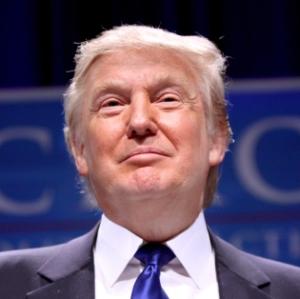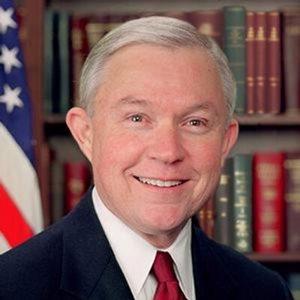The Wolverine State could become the first in the heartland to free the weed.
The president leans toward campaign promises regarding marijuana policy and away from his hard-line attorney general.
The Senate minority leader has a plan to make federal marijuana prohibition go up in smoke.
The bud business is getting bigger and bigger.
It looks like Utahns will get a chance to vote for medical marijuana in November, medical marijuana bills advance in Missouri and South Carolina, and more.
This week brings a full hand of cops arrested on various drug charges, including a South Carolina police chief with a pill habit and a New Jersey cop with a drug-dealing habit.
President Trump nominates a new drug czar, a Senate opioid bill moves, Colombia ponders using drones to eradicate coca crops, and more.
Michigan could legalize marijuana come November, Mexico's leading presidential contender defends a proposal to use amnesty to fight drug violence, Maryland Democratic gubernatorial contender Ben Chavous says legalize marijuana, and more.
Canada's Liberal Party formally endorses drug decriminalization (although Justin Trudeau is keeping his distance), the State Department cites continuing human rights concerns in the Philippines drug war, a Utah medical marijuana initiative appears set to make the November ballot, and more.
Michigan could legalize marijuana come November, Mexico's leading presidential contender defends a proposal to use amnesty to fight drug violence, Maryland Democratic gubernatorial contender Ben Chavous says legalize marijuana, and more.
President Trump nominates a new drug czar, a Senate opioid bill moves, Colombia ponders using drones to eradicate coca crops, and more.
This article was produced in collaboration with AlterNet and first appeared here.
The Midwest could soon see its first state end marijuana prohibition. State officials in Michigan announced Tuesday that a marijuana legalization initiative has enough valid voter signatures to appear on the November ballot. Polls in the state suggest it will win.
That would be a major breakthrough for legal marijuana. So far, legalization has been limited to West Coast, Rocky Mountain, and New England states, but a victory in Michigan this fall would free the weed in a major Midwest state. Legal marijuana would no longer be limited to the country's fringes, but would have a home in the heartland, and that would lay the groundwork for a more rapid erosion of pot prohibition at the state level.
There's a chance some other state could beat Michigan to the punch -- there are legislative efforts still alive in several states -- but legalizing weed at the statehouse has proven to be a frustrating, years-long task. With a ballot initiative, voters accomplish as much (if not more and better) in one fell swoop.
It's not absolutely official yet -- the state Board of Canvassers is set to formally certify the count on Thursday -- but the Board of Elections announced Monday that it counted 277,370 valid voter signatures, nearly 10% more than the 252,523 required to be approved for the ballot.
The initiative, the Michigan Regulation and Taxation of Marijuana Act, would:
- Legalize the possession and sale of up to 2.5 ounces of marijuana for personal, recreational use and up to 10 ounces at home.
- Legalize the cultivation of up to 12 plants, as well as the fruits of the harvest.
- Tax marijuana sales at a rate of a 10% excise tax at the retail level as well as a 6% sales tax. The estimated revenues from the taxes are at least $100 million.
- Split those revenues with 35% going to K-12 education, 35% to roads, 15% to the communities that allow marijuana businesses in their communities and 15% to counties where marijuana business are located.
- Allow communities to decide whether they'll permit marijuana businesses.
- Restrict purchases of marijuana for recreational purposes to 2.5 ounces, but an individual could keep up to 10 ounces of marijuana in their homes.
- Allow the Department of Licensing and Regulatory Affairs (LARA), and not the politically appointed licensing board that will regulate the medical marijuana side of the issue, to regulate and license marijuana businesses, ranging from growers, transporters, testers and dispensaries.
- Set up three classes of marijuana growers: up to 100, 500 and 2,000 plants.
The initiative was put together by the Coalition to Regulate Marijuana Like Alcohol, a combined effort of veteran state activists and the ACLU of Michigan and national drug reform groups, including the Marijuana Policy Project and the Drug Policy Alliance. It was built on the back of a 2016 initiative campaign that came up just short on signatures.
The initiative looks well-positioned to win in November, riding as it does pot's ever-increasing wave of popularity. A February poll had support for legalization in Michigan at 57%, while a March poll came in at 61%. Those are the kinds of polling numbers initiative and referendum experts like to see at the beginning of the campaign because they suggest that even with the inevitable erosion of support in the face of opposition attacks, the measure still has a big enough cushion to pull off a victory.
Support for legalization has also seeped into the state Democratic Party, with all four Democratic gubernatorial candidates now behind it. Ditto for the state attorney general race, with both Democrats now embracing legalization.
No mainstream Republicans have embraced the initiative, but there have been reports that state GOP politicians are now considering passing a legalization bill in the legislature in a bid to blunt voter turnout in what they fear could be a Blue Wave election. They worry that the chance to vote for marijuana could produce an electorate more likely to throw them out of office.
They may well be right. The day after election day, Michigan could wake up to both legal marijuana and a Democratic majority in the state house and/or senate. Wouldn't that be something?
back to top
This article was produced in collaboration with AlterNet and first appeared here.
President Trump last week signaled a dramatic turnaround in administration marijuana policy, telling Colorado Republican Sen. Cory Gardner that the Justice Department would not go after state-legal marijuana in Colorado and that he would support moves to address the contradiction between legal marijuana states and federal prohibition.

Donald Trump goes all states' rights on Jeff Sessions when it comes to pot policy. (Wikimedia/Gage Skidmore)
That puts Trump in line with his own campaign statements that marijuana should be a states' rights issue, but at odds with Attorney General Jeff Sessions, who has been a staunch opponent of marijuana legalization and who has explicitly told federal prosecutors they are free to go after the legal marijuana industry. Sessions, who is much abused by Trump for failing to protect him from the Mueller investigation, now finds himself on the outs on pot policy, too.
And Trump didn't even bother to tell Sessions he was about to cut the legs out from under him, an almost unprecedented slight from a president to his attorney general.
Gardner, a Republican up for reelection in a pot-friendly state, had placed a hold on Justice Department nominees since Sessions rescinded the Obama-era policy in January and announced the apparent policy shift with a Friday afternoon press release after a phone call with Trump earlier in the week.
"Since the campaign, President Trump has consistently supported states' rights to decide for themselves how best to approach marijuana," Gardner said. "Late Wednesday, I received a commitment from the President that the Department of Justice's rescission of the Cole memo [Obama-era guidance] will not impact Colorado's legal marijuana industry. Furthermore, President Trump has assured me that he will support a federalism-based legislative solution to fix this states' rights issue once and for all."
Gardner said Trump's comments had convinced him to remove his remaining holds on Justice Department nominees, and that he would continue to work on a bipartisan legislative solution to pass Congress so Trump can "deliver on his campaign position."
"The president did speak with Sen. Gardner yesterday and again today," White House Press Secretary Sarah Sanders told reporters Friday. She said "the president is a firm believer" in states' rights and confirmed Gardner's account of the assurances he received from the president was accurate.

Once again, the attorney general finds himself out of step with his boss. (senate.gov)
While Trump is notorious for seat-of-the-pants policy shifts and for lack of follow-through on policy pronouncements, some activist groups were quick to laud the apparent shift.
"Sen. Gardner has done a great service for his constituents by standing up for federalism regarding marijuana policy," said Don Murphy, director of conservative outreach for the Marijuana Policy Project. "Everyone who knew about President Trump's statements on this issue during the campaign was hoping he would uphold those values and support states' abilities to enact laws regulating marijuana for medical or adult use while in office. This news should make states more comfortable implementing their legalization programs. It should also serve as a rallying cry for lawmakers to pass comprehensive legislation that leaves marijuana policy to the states permanently."
Congress renewed spending restrictions that prevent federal interference in state medical marijuana in March, but no such protections exist for states that have regulated marijuana for adults. Trump's statements suggest that the same policy will apply to both medical and adult use providers, but the Dept. of Justice could still legally pursue cases against state-legal adult use operations if federal prosecutors choose to do so.
"With the support of the president, the American public, and mounting evidence that regulating marijuana similarly to alcohol is much preferable to prohibition, there is no reason for Congress to delay any longer," continued Murphy. "There are several pieces of marijuana policy legislation being considered right now, and every one of them should get hearings immediately."
But Washington state Attorney General Bob Ferguson was more cautious. As the head law enforcement officer in a legal marijuana state, Ferguson is adopting a wait-and-see position.
"I understand President Trump has offered his support for states to have the right to regulate marijuana and for legislation to enshrine this right in law," he said in a Friday statement. "I am cautiously optimistic that the president appears to have heard the will of the people on this issue. But this president has demonstrated a willingness to go back on his word. Until there is a formal agreement protecting Washington's well-regulated marijuana industry, I will continue to stand ready to defend it."
Given this president, that is probably the prudent position.
back to top
This article was produced in collaboration with AlterNet and first appeared here.
The Senate's highest-ranking Democrat is letting his freak flag fly. In a Thursday night interview with VICE News, Minority Leader Chuck Schumer (D-NY) announced he is crafting legislation that would result in the effective end of federal marijuana prohibition.

Senate Minority Leader Chuck Schumer (D-NY) wants to end federal pot prohibition. (Flickr/DonkeyHotey
The New York senator isn't the first high-profile Democrat to embrace marijuana legalization -- 2020 presidential contenders Sens. Cory Booker (D-NJ), Kirsten Gillibrand (D-NY), and Bernie Sanders (I-VT) are all on board -- but he is the Senate minority leader. He could be the Senate majority leader next year (somewhat of a longshot, but not as much as much as previously thought) or in 2021, and having a friendly majority leader means a legalization bill actually moves in the Senate.
"Ultimately, it's the right thing to do. Freedom," he told VICE News' Shawna Thomas. "If smoking marijuana doesn't hurt anybody else, why shouldn't we allow people to do it and not make it criminal?" Schumer said.
The legislation should be unveiled within the next week and has four main points:
- Remove (or deschedule) marijuana from the Controlled Substances Act, ending federal marijuana prohibition and leaving pot laws up to the states.
- Provide assistance to encourage minority and woman-owned marijuana businesses.
- Provide funding for research on marijuana's effects, especially on driving impairment.
- Maintain federal authority to regulate marijuana advertising like alcohol and tobacco.
Not only does Schumer now support leaving it to the states, he supports legalizing it in his own state.
"My personal view is legalization is just fine," he said. "The best thing to do is let each state decide on its own."
Marijuana could be a winning issue for Democrats this November and in 2020. The latest Gallup poll had support for legalization at a record high 64%. But Schumer said legalizing pot wasn't about politics.
"I’m doing it because I think it’s the right thing to do. I’ve seen too many people’s lives ruined by the criminalization," he said. "If we benefit, so be it. But that’s not my motivation."
He even told Thomas that while he had never smoked weed before, he might give it a try. "Maybe, I'm a little old, but who knows?"
Here's the interview:
back to top
This article was published in collaboration with AlterNet and first appeared here.
The American marijuana industry should hit $25 billion in sales by 2025, according to the latest estimate by the industry analytics firm New Frontier Data. That would put pot in the same league as such well-established industries as radio, video games, children's toys, and the market research industry.
The research firm released updated data on industry sales projections on Friday as a teaser for its "
US Cannabis Report: 2018 Industry Outlook," due to be released next month.
New Frontier estimated the size of the industry this year at $8.3 billion and predicted that the recreational and medical marijuana industry will grow at a compounded annual rate of 14.7%, creating a $25 billion market within the next seven years.
Recreational marijuana will account for the bulk of the increase, New Frontier said. While medical marijuana sales are expected to increase at a compound annual rate of 11.8%, recreational sales are projected to go up by 18.4%. At those rates, by 2025, the recreational and medical marijuana markets will be the same size.
"Across the globe, we have seen massive expansion as more than 50 countries are legalizing or decriminalizing cannabis. However, the United States continues to lead the way in cannabis consumption in legal medical and adult use markets. With a number of states expected to advance cannabis legalization measures in the next 24 months, more Americans will be able to access legal cannabis in the years to come," Giadha Aguirre De Carcer, New Frontier Data's chief executive officer said in a statement.
Notably, the analysis is based only on growth in those states that have already legalized medical and/or recreational use and does not assume that any other states will do so. That means $25 billion is probably a low-ball figure, given that a number of other states are likely to legalize recreational use before 2025.
Buds have become big business, indeed, and are destined to get even bigger.
back to top
It looks like Utahns will get a chance to vote for medical marijuana in November, medical marijuana bills advance in Missouri and South Carolina, and more.
IllinoisLast Wednesday, the Houes approved medical marijuana for students at school. The House voted to approve House Bill 4870, which would allow parents to administer infused marijuana to their children in elementary and secondary schools. The bill passed by a margin of 99-1. It now goes to the Senate.
Missouri
On Tuesday, Mthe House gave initial approval to a medical marijuana bill. The House gave initial approval to House Bill 1554, which would allow people over 18 dying of terminal diseases or suffering from Alzheimer's, PTSD, and other enumerated conditions to use smokeless marijuana. The bill faces one more House vote before going to the Senate.
South Carolina
Last Thursday, a medical marijuana bill advanced. The House Medical, Military, Public and Municipal Affairs Committee voted 14-3 to approve House Bill 3521, the South Carolina Compassionate Care Act. The bill would allow seriously ill patients to use marijuana to treat their conditions with a recommendation from their doctors. The legislature's crossover deadline has already passed, but this vote, combined with approval by the Senate Medical Affairs Committee on March 29, builds momentum for full passage next year.
Utah
As of last Friday, a medical marijuana initiiative appeared set to qualify for the November ballot. A medical marijuana initiative from the Utah Patients Coalition looks very likely to qualify for the November ballot. While it won't be official until May 15, petitioners appear to have met the overall signature requirement, with 145,000 registered voter signatures in hand, well above the 113,000 required. But the initiative also must meet specific signature thresholds in each of the state's 29 state Senate districts. As of last Friday, they had done so in 26 of them.
[For extensive information about the medical marijuana debate, presented in a neutral format, visit MedicalMarijuana.ProCon.org.]
back to top
This week brings a full hand of cops arrested on various drug charges, including a South Carolina police chief with a pill habit and a New Jersey cop with a drug-dealing habit. Let's get to it:
In Dothan, Alabama,
a Dothan police officer was arrested last Tuesday for allegedly possessing stolen drugs. Sergeant Jonathan Whaley went down after he began behaving erratically during a training class, was then drug tested, and placed on paid leave. Police then searched his vehicle and found Xanax and codeine that are believed to have been stolen from a home where Whaley answered a medical call. He is charged with two counts of illegally possessing controlled substances and two counts of theft.
In Walhalla, South Carolina, the former Walhalla police chief was arrested last Friday, just days after he was forced to resign, for allegedly illegally obtaining prescription drugs from officers, their families, and private citizens over a seven-year period. A three-count indictment says he cadged spare pain pills that had been obtained legitimately by officers under his command. He faces three counts of misconduct in office. He's looking at up to three years in prison.
In Paterson, New Jersey, a Paterson police officer was arrested last Friday on charges he dealt heroin and cocaine to a wired-up informant. Officer Ruben McAusland, 26, is accused of repeatedly selling heroin, crack, and powder cocaine to local drug dealers. He faces unspecified drug distribution charges and is now out on $100,000 bail.
In Waxhaw, North Carolina, a Gaston County assistant district attorney was arrested Sunday after he was caught in possession of heroin and methamphetamine. Assistant DA James Brandon Graham was carrying 11 syringes, six of which contained heroin and three of which tested positive for meth. Two were empty. He charged with felony counts of heroin and methamphetamine possession and a misdemeanor count of possessing drug paraphernalia. His workload included drug cases. There is no word yet on how those cases may be effected.
In Newport News, Virginia, a Poquoson police officer was arrested Monday for allegedly taking a bribe from a drug dealing suspect "in exchange for impeding prosecution." Officer Dearyl Anderson, 56, faces a single count of bribery. He is now on administrative leave.
back to top
President Trump nominates a new drug czar, a Senate opioid bill moves, Colombia ponders using drones to eradicate coca crops, and more.

This Colombian peasant may have to start watching out for overhead drones. (dea.gov)
Senate Opioid Bill Passes Out of Committee. The Senate Health, Education, Labor and Pensions Committee on Tuesday approved Senate Bill 2680, the Opioid Crisis Response Act of 2018. The bill, which includes over 40 proposals related to ways to combat the opioid epidemic, was written after seven committee hearings on the crisis with input from various agencies and state officials. Other Senate and House committees are hearing other bills related to the opioid crisis.
Drug Policy
White House Nominates James W. Carroll, Jr. for Drug Czar Post. President Trump on Monday announced that he intends to nominate James W. Carroll, Jr., to head the Office of National Drug Control Policy (ONDCP -- the drug czar's office). Even though he has no drug policy experience, he is already the acting director of ONDCP. A lawyer by training, Carroll served as special counsel to President George W. Bush, general counsel for Ford Motor Company, and an assistant to President Trump, among other positions.
Sentencing
California Bills Would Fix Overuse of Sentencing Enhancements. State Sens. Holly Mitchell (D-Los Angeles) and Ricardo Lara (D-Bell Gardens) have filed a pair of bills, Senate Bill 1392 and Senate Bill 1393, that aim to reduce the prison population by reforming the use of sentencing enhancements. Among the most common are a one-year enhancement for each prior prison or county jail felony prison term and a five-year enhancement for having a previous felony when convicted of a serious felony. More than 35,000 prisoners have had sentences lengthened under these laws. SB1392 proposes eliminating the one-year sentence enhancement for prior jail terms. SB1393 proposes returning judicial discretion over striking a prior conviction for a serious felony for the purposes of the five-year sentencing enhancement.
International
Colombia Ponders Using Drones for Aerial Coca Crop Eradication. Colombian police could start using drones to combat a five-year surge in coca production that has damaged relations with the US. Colombian anti-drug police have contracted with a local company to test drones for spraying herbicides on coca fields, according to state contracting documents.
back to top
Michigan could legalize marijuana come November, Mexico's leading presidential contender defends a proposal to use amnesty to fight drug violence, Maryland Democratic gubernatorial contender Ben Chavous says legalize marijuana, and more.
Marijuana PolicyArkansas Attorney General Rejects Legalization Initiative. Attorney General Leslie Rutledge rejected a proposed marijuana legalization ballot initiative Tuesday. The initiative, the Arkansas Hemp and Cannabis Amendment, is similar to one rejected by Rutledge in 2016, and she crankily noted that the author, Robert Reed, had not really changed anything since then. "I rejected your proposed ballot title, and I instructed you to redesign the proposed measure and ballot title. For whatever reason, you have now submitted for my approval a popular name and ballot title for essentially the same proposal," she wrote.
Maryland Democratic Gubernatorial Candidate Says Legalize It. Former president and CEO of the NAACP Ben Chavous is seeking the Democratic nomination for governor, and he is calling for marijuana legalization and special preferences for people who live in areas most negatively affected by the war on drugs.
Michigan Legalization Initiative Qualifies for November Ballot. Officials with the state Bureau of Elections announced Monday that a marijuana legalization initiative has qualified for the November ballot. Organizers needed 252,523 valid voter signatures to qualify; officials estimate they actually have 277,370. If voters approve the initiative, Michigan will become the first Midwestern state to free the weed.
Medical Marijuana
Missouri House Gives Initial Approval for Medical Marijuana Bill. The House on Tuesday gave initial approval to House Bill 1554, which would allow people over 18 dying of terminal diseases or suffering from Alzheimer's, PTSD, and other enumerated conditions to use smokeless marijuana. The bill faces one more House vote before going to the Senate.
International
Mexico's Leading Presidential Candidate Defends Proposed Amnesty to Fight Drug Violence. Andres Manuel Lopez Obrador (AMLO), under fire from his competitors over a suggestion that he could use amnesty to curb drug violence, defended himself in a Tuesday night debate. He said he was willing to "speak with everybody" about ending the violence, and would even invite the pope. One candidate accused AMLO of "being on the side of the criminals," but all the candidates had to acknowledge the weakness of the police in the face of the challenge from organized crime.
(This article was prepared by StoptheDrugWar.org's 501(c)(4) lobbying nonprofit, the Drug Reform Coordination Network, which also pays the cost of maintaining this web site. DRCNet Foundation takes no positions on candidates for public office, in compliance with section 501(c)(3) of the Internal Revenue Code, and does not pay for reporting that could be interpreted or misinterpreted as doing so.)
back to top
Canada's Liberal Party formally endorses drug decriminalization (although Justin Trudeau is keeping his distance), the State Department cites continuing human rights concerns in the Philippines drug war, a Utah medical marijuana initiative appears set to make the November ballot, and more.

Sen. Kirsten Gillibrand (D-NY) says it is time to legalize marijuana. (Flickr)
Kirsten Gillibrand Says Time to Legalize Marijuana, Calls on Sessions to Meet With People Busted for Pot. The junior senator from New York and potential Democratic presidential contender said Sunday the time has come to legalize marijuana and that she had sent a letter to Attorney General Jeff Sessions inviting him to discuss the impact of the drug war with New Yorkers who have been denied jobs, housing, and college financial aid because of non-violent drug crimes. She also called on Sessions to reinstate the Cole memo, the Obama administration's policy of largely leaving state-legal marijuana alone.
Idaho Democratic Gubernatorial Contenders Split on Marijuana Policy. One Democrat running for governor wants to legalize marijuana; the other does not. In a Sunday night debate on Idaho Public Television, contender Paulette Jordan said she fully supports legalization and cited the tax benefits for the state. Boise businessman AJ Balukoff, who is also seeking the nomination, disagreed. He said he is opposed to the substance and believes medical marijuana needs to be properly tested. Idaho is one of four states in the country that has not passed any form of marijuana law reform, not even a CBD medical marijuana law.
Albuquerque Decriminalization Went into Effect on 4/20. New Mexico's largest city has now decriminalized the possession of less than an ounce of marijuana. The change went into effect last Friday after a measure was passed by the city council and signed by Mayor Tim Keller. Possession remains a crime under state and federal law.
Medical Marijuana
Utah Initiative Appears Set to Qualify for November Ballot. A medical marijuana initiative from the Utah Patients Coalition looks very likely to qualify for the November ballot. While it won't be official until May 15, petitioners appear to have met the overall signature requirement, with 145,000 registered voter signatures in hand, well above the 113,000 required. But the initiative also must meet specific signature thresholds in each of the state's 29 state Senate districts. As of last Friday, they had done so in 26 of them.
Foreign Policy
State Department Says Drug War Killings Remain Top Philippines Human Rights Concern. In its global rights report for 2017, the State Department said drug war killings and rising police impunity remain the top human rights concerns in the Philippines. "Extrajudicial killings have been the chief human rights concern in the country for many years and, after a sharp rise with the onset of the antidrug campaign in 2016, they continued in 2017,"reads the report released Friday (Washington time). The report also expressed doubt and uncertainty over Filipino government reports on the killings. "Police claimed to have begun investigations of all reports of extrajudicial killings,"the report read in part. "Some civil society organizations accused police of planting evidence, tampering with crime scenes, unlawfully disposing of the bodies of drug suspects, and other actions to cover up extrajudicial killings,"it added.
International
Canadian Liberals Formally Endorse Drug Decriminalization, Trudeau Demurs. Canada's governing Liberal Party endorsed the decriminalization of the possession of all drugs at its national convention Saturday. But party policy isn't necessarily government policy, and party leader Prime Minister Justin Trudeau has distanced himself from the decriminalization plank. Drug decriminalization, as well as the decriminalization of sex work and proposals to reform health care, which the party also approved, are seen as bolstering the Liberals' odds against the New Democrats, who traditionally attack them from the left.
(This article was prepared by StoptheDrugWar.org's 501(c)(4) lobbying nonprofit, the Drug Reform Coordination Network, which also pays the cost of maintaining this web site. DRCNet Foundation takes no positions on candidates for public office, in compliance with section 501(c)(3) of the Internal Revenue Code, and does not pay for reporting that could be interpreted or misinterpreted as doing so.)
back to top
Michigan could legalize marijuana come November, Mexico's leading presidential contender defends a proposal to use amnesty to fight drug violence, Maryland Democratic gubernatorial contender Ben Chavous says legalize marijuana, and more.
Marijuana PolicyArkansas Attorney General Rejects Legalization Initiative. Attorney General Leslie Rutledge rejected a proposed marijuana legalization ballot initiative Tuesday. The initiative, the Arkansas Hemp and Cannabis Amendment, is similar to one rejected by Rutledge in 2016, and she crankily noted that the author, Robert Reed, had not really changed anything since then. "I rejected your proposed ballot title, and I instructed you to redesign the proposed measure and ballot title. For whatever reason, you have now submitted for my approval a popular name and ballot title for essentially the same proposal," she wrote.
Maryland Democratic Gubernatorial Candidate Says Legalize It. Former president and CEO of the NAACP Ben Chavous is seeking the Democratic nomination for governor, and he is calling for marijuana legalization and special preferences for people who live in areas most negatively affected by the war on drugs.
Michigan Legalization Initiative Qualifies for November Ballot. Officials with the state Bureau of Elections announced Monday that a marijuana legalization initiative has qualified for the November ballot. Organizers needed 252,523 valid voter signatures to qualify; officials estimate they actually have 277,370. If voters approve the initiative, Michigan will become the first Midwestern state to free the weed.
Medical Marijuana
Missouri House Gives Initial Approval for Medical Marijuana Bill. The House on Tuesday gave initial approval to House Bill 1554, which would allow people over 18 dying of terminal diseases or suffering from Alzheimer's, PTSD, and other enumerated conditions to use smokeless marijuana. The bill faces one more House vote before going to the Senate.
International
Mexico's Leading Presidential Candidate Defends Proposed Amnesty to Fight Drug Violence. Andres Manuel Lopez Obrador (AMLO), under fire from his competitors over a suggestion that he could use amnesty to curb drug violence, defended himself in a Tuesday night debate. He said he was willing to "speak with everybody" about ending the violence, and would even invite the pope. One candidate accused AMLO of "being on the side of the criminals," but all the candidates had to acknowledge the weakness of the police in the face of the challenge from organized crime.
(This article was prepared by StoptheDrugWar.org's 501(c)(4) lobbying nonprofit, the Drug Reform Coordination Network, which also pays the cost of maintaining this web site. DRCNet Foundation takes no positions on candidates for public office, in compliance with section 501(c)(3) of the Internal Revenue Code, and does not pay for reporting that could be interpreted or misinterpreted as doing so.)
back to top
President Trump nominates a new drug czar, a Senate opioid bill moves, Colombia ponders using drones to eradicate coca crops, and more.

This Colombian peasant may have to start watching out for overhead drones. (dea.gov)
Senate Opioid Bill Passes Out of Committee. The Senate Health, Education, Labor and Pensions Committee on Tuesday approved Senate Bill 2680, the Opioid Crisis Response Act of 2018. The bill, which includes over 40 proposals related to ways to combat the opioid epidemic, was written after seven committee hearings on the crisis with input from various agencies and state officials. Other Senate and House committees are hearing other bills related to the opioid crisis.
Drug Policy
White House Nominates James W. Carroll, Jr. for Drug Czar Post. President Trump on Monday announced that he intends to nominate James W. Carroll, Jr., to head the Office of National Drug Control Policy (ONDCP -- the drug czar's office). Even though he has no drug policy experience, he is already the acting director of ONDCP. A lawyer by training, Carroll served as special counsel to President George W. Bush, general counsel for Ford Motor Company, and an assistant to President Trump, among other positions.
Sentencing
California Bills Would Fix Overuse of Sentencing Enhancements. State Sens. Holly Mitchell (D-Los Angeles) and Ricardo Lara (D-Bell Gardens) have filed a pair of bills, Senate Bill 1392 and Senate Bill 1393, that aim to reduce the prison population by reforming the use of sentencing enhancements. Among the most common are a one-year enhancement for each prior prison or county jail felony prison term and a five-year enhancement for having a previous felony when convicted of a serious felony. More than 35,000 prisoners have had sentences lengthened under these laws. SB1392 proposes eliminating the one-year sentence enhancement for prior jail terms. SB1393 proposes returning judicial discretion over striking a prior conviction for a serious felony for the purposes of the five-year sentencing enhancement.
International
Colombia Ponders Using Drones for Aerial Coca Crop Eradication. Colombian police could start using drones to combat a five-year surge in coca production that has damaged relations with the US. Colombian anti-drug police have contracted with a local company to test drones for spraying herbicides on coca fields, according to state contracting documents.
back to top









